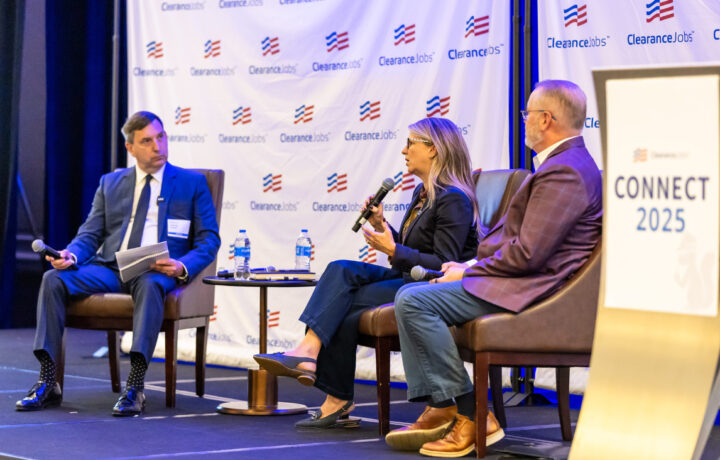At ClearanceJobs Connect 2025 in Reston, VA, two of WashingtonExec’s “CSOs to Watch” took the stage to reflect on how their roles are evolving in a world of complex threats and rapid technological change. The panel, moderated by Charlie Sowell, CEO of SE&M Solutions, featured Christy Wilder, Chief Security Officer at Peraton, and Kirk McClain, Chief Security Officer at Accenture Federal Services.
Both leaders stressed that the CSO’s responsibilities have grown far beyond the traditional “guards, gates, and guns” model. Today’s security leaders are expected to be proactive risk managers, bridging physical, cyber, and insider threat domains. As Wilder noted, blurred lines between functions mean CSOs are now deeply engaged with HR, legal, and compliance teams, making cross-functional collaboration a daily requirement.
One of the panel’s strongest themes was the need for better information sharing between government and industry. Clearance revocations and insider threat cases often leave companies with little insight into the underlying issues, making it harder to safeguard missions and maintain trust. “When China and Russia know more about our cleared workforce than we do, that’s a fundamental national security problem,” Sowell cautioned.
Building trust and relationships within the C-suite is key to reframing security as a mission enabler rather than a roadblock. Chief Security Officers play a critical role in educating and innovating, not just identifying risks, but helping executives prepare for the diversification of the threat landscape. “The single biggest opportunity for cleared security leaders is introducing technology,” Wilder emphasized. She noted that not only would technology introduce new data sources but it would bring together the disparate data sets we use today to better inform decisions. Demonstrating value through metrics, McClain added, helps security teams secure resources, measure effectiveness, and strengthen accountability.
The discussion made clear that the role of the CSO has shifted dramatically in just the past five years. With AI, cyber threats, and post-quantum cryptography reshaping the landscape, today’s CSOs are expected to anticipate risks, lead strategically, and cultivate cultures where security drives mission success.




